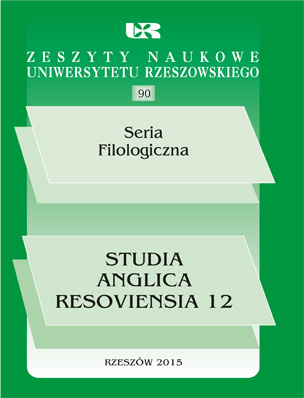History and Fiction: Ngũgĩ Wa Thiong’o’s Vision
DOI:
https://doi.org/10.15584/sar.2015.12.14Keywords:
postcolonial literature, history, politics, community, individualismAbstract
Since postcolonial writing has always been rooted in the historical process of colonization, the narratives, especially in the early stages of postcolonial literature, bore an imprint of the historical development in the colonies. With local writers often addressing the pressing historical and political issues of that time and authors being seen as „beacons, soothsayers, and seers of political movements” (Boehmer), literature became implicated in the turmoil of public happenings. The paper seeks to examine the relation between history and fiction as presented in Ngũgĩ wa Thiong’o’s early novel „A Grain of Wheat”. Thiong’o, who is known for his zealous political activism, sees literature not only as a medium which reflects social reality but rather as a creative process that is conditioned by historical social forces and pressures. The paper challenges the concept of fiction as representation of history but also ruminates upon the role of Thiong’o’s writing within the context of Kenyan historiography.Downloads
Download data is not yet available.
Downloads
Published
2015-12-15
How to Cite
Klimkova, S. (2015). History and Fiction: Ngũgĩ Wa Thiong’o’s Vision. Studia Anglica Resoviensia, 12(12), 154–161. https://doi.org/10.15584/sar.2015.12.14
Issue
Section
Articles
License
Copyright (c) 2015 Studia Anglica Resoviensia

This work is licensed under a Creative Commons Attribution-NonCommercial 4.0 International License.

